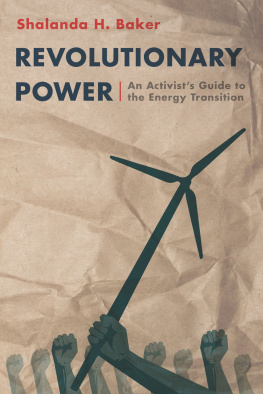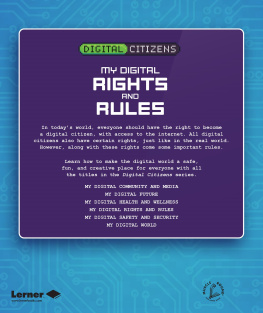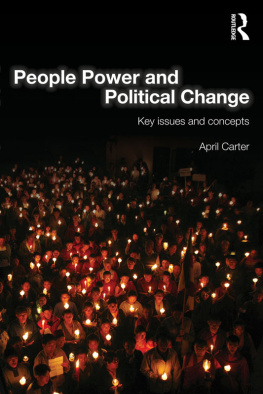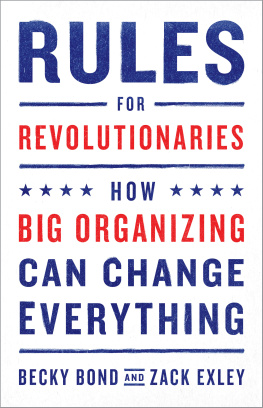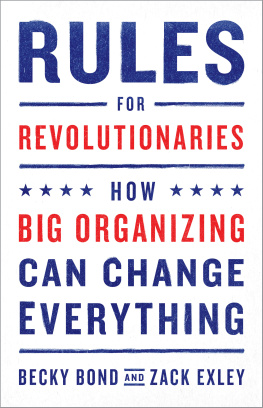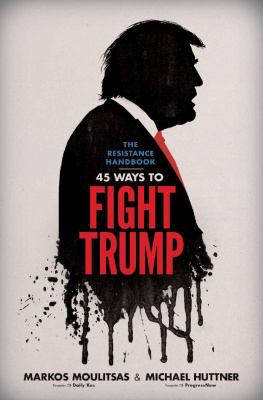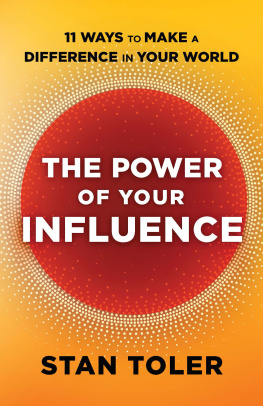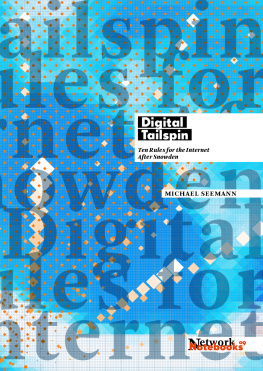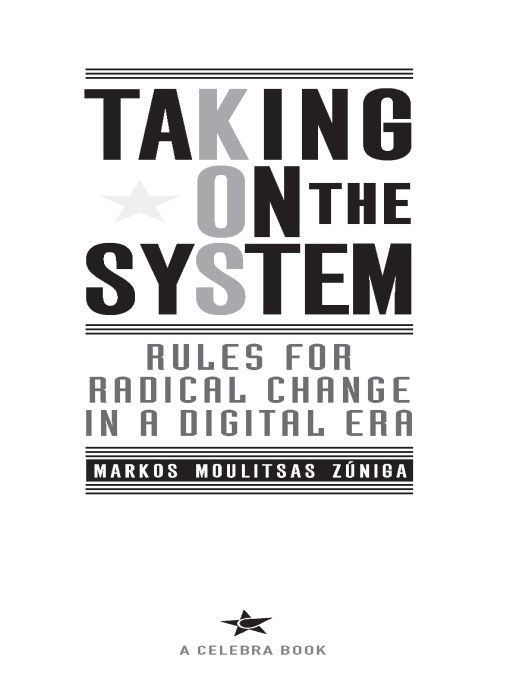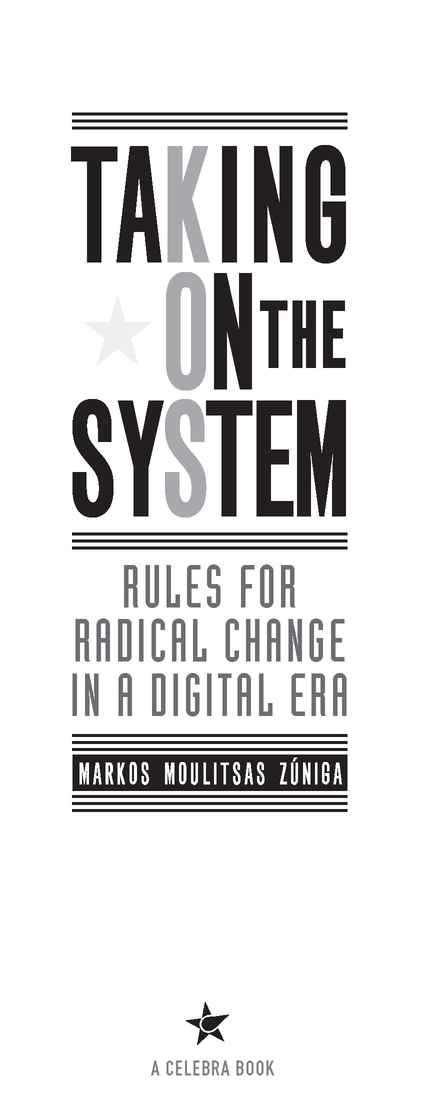Table of Contents
For Elisa, Eli and Ari.
And for Saul Alinsky.
The tactics may change, but the soul of the radical endures.
Do what you can, with what you have, where you are.
Theodore Roosevelt
Conflict is the essential core of a free and open society.
Saul Alinsky
PROLOGUE
You cant change the world without conflict.
Whether you want to change Capitol Hill or Capitol Records, the corporate tower or the ivory tower, conflict must precede change, because in most of the big institutions of our society, we have too many entrenched elites who refuse to give up their power without a fight.
Traditionally, these self-appointed and unaccountable gatekeepers have purported to operate in the public interest, but they are grossly out of touch with the public. Rather than empower people, they designed rules to keep the rabble out of their inner sanctums, where our ideas wouldnt infect their decision-making process. Whether it was record label executives, or Hollywood studio moguls, or editors and producers in the media, or the clubby D.C. politicians, consultants, and lobbyistsmany built walls to protect the sanctity of their turf.
Only people with the proper pedigreerich parents, friends in high placeswere invited into the club. The value of an opinion or idea was determined by the social status of the person expressing it. Passion was considered uncouth. Youth was seen as a drawback. And the gatekeepers were stationed at the entryways to the halls of power.
The results? A sick body politic and a homogenized culture. A disengaged citizenry, cynical and despondent over its inability to effect change, and a powerful elite unhampered and unchallenged in the dogged pursuit of its own interests over those of society at large.
But all that is changing. Technology has unlocked the doors and facilitated a genuine democratization of our culture. No longer content to sit on the sidelines as spectators, a new generation of participants is taking an active role in our culture and democracy. This has left the traditional gatekeepers and the elites they guard with few choices. Some are embracing this democratization, welcoming the new participants. Others are simply tolerating the interlopers, acknowledging the process as an inevitable evolution in our culture. Then there are those digging in their heels, and fighting a losing battle to protect their domain.
There is nothing inherently evil about being a traditional gatekeeper, only in seeking to muzzle the new voices rising up from the ground. Like mine, for example.
In 2002, I sat down and wrote these first three sentences on a silly little site I had dubbed Daily Kos (Kos being my U.S. Army nickname): I am progressive. I am liberal. I make no apologies. To say I had no idea where those ten words would lead is an understatement. From that genesis, Daily Kos has morphed into one of the most heavily trafficked blogs in the world, and certainly the most influential political blog in the United States today.
I started the site for a simple reasonI felt ill-served by the undemocratic gatekeeping mentality so prevalent in our society. At that time, the United States seemed to be on an inexorable march toward war with no avenue for dissent. There was an assumption by the powers that be that the rest of the citizens couldnt think for ourselves. That we needed self-appointed so-called experts to tell us what to think, what to do, and what we shouldor should notknow. For far too long, these gatekeepers controlled the national conversation.
Daily Kos exists because, quite simply, we had a dramatic market failure on our hands. If the gatekeepers wouldnt offer the news and viewpoints I craved, well then, Id have to take matters into my own hands. Yet I saw no template to work from. If I looked to progressive politics, all I saw was a movement splintered into issue silosenvironmentalists, pro-choice groups, labor unions, civil libertarians, trial lawyers, ethnic and racial identity groups, all of them screaming that their issue was the most important, and sabotaging each other in pursuit of donor money and legislative priorities. And given the woeful state of the Democratic Party circa 2002, it was clear their approach was a failure. I would have to look elsewhere to channel my energy and activism.
But everywhere I turned, I ran up against gatekeepers. You know them. In media, they are the editors and producers. In politics, they are the party machinery and establishment elite. In music, they are the music label executives. In film and video, they are the Hollywood hierarchy. In the book world, its the publishing houses. If you wanted to be an active agent in our culture, it was impossible to do so without one of those gatekeepers anointing you with their approval. And most of the time, these gatekeepers saw you as a nuisance. Who needs young whippersnappers shaking up their cozy, safe, predictable worlds?
The comfortable and established are more invested in holding their positions of privilege than in risking new ways of writing, thinking, innovating, exploring, and governing. Hence, we have been cursed with a system that doesnt always reward the greatest talents. It is mostly a cultural and political aristocracy, not a meritocracy. Forget trying to change anything, because to change the world, you had to be a somebody. And most of us dont get to be somebody. I sure as heck wasnt back then.
But Katie Couric was. At the time, she was hosting the Today show on NBC, judiciously reporting on the drumbeats emanating from a White House preparing for war on Iraq. Anyone who disagreed with the administrations war footing faced vicious attacks. In this post-9/11 environment, criticizing the administration on anything, even domestic policy, was viewed as giving aid and comfort to our enemies.
Couric, now anchor of the CBS Evening News, characterized the tenor of the time, at the National Press Club in late September 2007: The whole culture of wearing flags on our lapel and saying we when referring to the United States and, even the shock and awe of the initial stages, it was just too jubilant and just a little uncomfortable. And I remember feeling, when I was anchoring the Today show, this inevitable march toward war and kind of feeling like, Will anybody put the brakes on this? And is this being properly challenged by the right people? And I think, at the time, anyone who questioned the administration was considered unpatriotic and it was a very difficult position to be in.
Like Katie Couric, I remember thinking, Of course the expert journalists in our professional media will fact check this rush to war and put the brakes on it! But unlike Couric, I didnt host one of the top-rated shows on network television. At a time when the country desperately needed a free, fair, and independent media to save it from what would becomepredictablya tragic and costly disaster, the media became an appendage of the White House propaganda machine.
I remember feeling alone and isolated. Even so-called reasonable and serious progressives sounded neither reasonable nor serious, norfor that matterprogressive. The most obvious questions were not being asked: Why were we abandoning our war against al-Qaeda in Afghanistan to invade a country that had nothing to do with 9/11? If Vice President Dick Cheney and then Defense Secretary Donald Rumsfeld knew exactly where the WMDs were in Iraq, why didnt they pass that info over to the UN weapons inspectors? The unanswered questions were endless.


